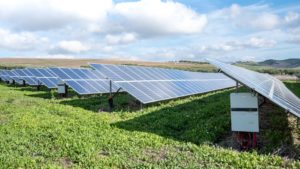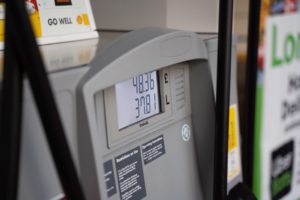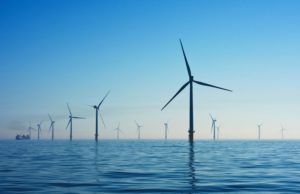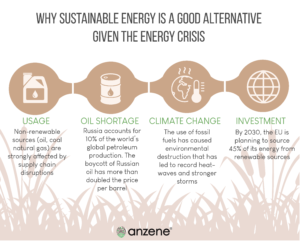
There is currently a global energy crisis, triggered by the Russian invasion of Ukraine (Huang, 2022). Russia’s invasion has warranted economic sanctions coming from the European Union and other customers, boycotting oil imports from Russia. This has disrupted the global oil supply chain, leading to a worldwide upsurge in prices.
Initially, the first round of sanctions did not target Russia’s oil supplies or energy payments (Fattouh et al., 2022). However, as tensions escalated and oil purchasers were under increased pressure from the international community, this has led to a self-sanctioning, where Russian oil consumers are forced to look at other alternatives.
Russia accounts for 10% of global petroleum production, producing about 10 million barrels of crude oil a day (Kilian & Plante, 2022). It is estimated that since the first day of the invasion, 3 million barrels per day of petroleum production have been removed from the global oil market. This geopolotical development has led to the price of oil barrels to rise from 65USD per barrel to over 130 USD (Montgomery, 2022).
The global effects of the energy crisis
The effects of the oil is not only limited to Europe and the United State–it has gone global (Lu, 2022). In Singapore, pump prices increased in June 3, reaching up to 4 SGD per liter (Kit, 2022). In Sri Lanka, amidst the economic collapse, consumers queuing for hoours as forced the government to implement work-from-home arrangements. All over the world, protests and demonstrations are held against the surging oil prices.

Jason Bordoff, an energy expert at Columbia University, remark that we are experiencing our first global energy crisis. Unfortunately, Bordoff also warns that “The ripple effects are being seen globally, and I don’t think we’ve seen the worse yet.”
Why sustainable energy is the answer
This energy crisis has paved the way for major investment in clean energy. In fact, the European Union is looking at sourcing 45% of its energy usage by 2030 from renewable energy in a long-term plan to reduce its reliance on Russian oil (Rankin, 2022). It is looking into investing 120 billion GBP in the next five years in order to attain this projection.
Non-renewable sources such oil, coal, and natural gas, make up the bulk of our energy consumption (National Renewable Energy Laboratory, 2001). We use it to hear up our homes and power our cars. Which is why when there is a disruption in the supply chain on either end, whether it is supply-induced or caused by the customers, we scramble for alternatives. In order to mitigate this in the future, the key is to prevent a big effect whenever there is a supply shock by looking into more sustainable options.

Not only that but even before this 2022 global energy crisis, there has been a worldwide effort to pivot toward sustainable energy, caused by the environmental destruction that our usage of fossil fuels has brought to us (United Nations). We are seeing record heat waves and intense floods and thunderstorms–all proven effects of our fossil fuel use (United Nations Environmental Programme, 2022).
Fossil fuel energy is no longer secure and sustainable. Sustainable energy provides a reliable answer out of future energy crises and the irreversible effects of climate change.

References:
Fattouh, B., Economou, A., & Mehdi, A. (2022, March). Russia-Ukraine Crisis: implications for
the global oil markets. The Oxford Institute for Energy Studies. https://www.oxfordenergy.org/publications/russia-ukraine-crisis-implications-for-global-oil-markets/
Huang, E. (2022, May 20). Consumers are hurting as “global energy shock” gets underway,
says World Energy Council. CNBC. https://www.cnbc.com/2022/05/20/global-oil-crisis-and-inflation-hurt-consumers-world-energy-council.html
Kilian, L., & Plante, M. D. (2022, March 22). The Russian Oil Supply Shock of 2022. Dallasfed.Org. https://www.dallasfed.org/research/economics/2022/0322.aspx
Kit, T. S. (2022, June 3). Pump prices up in Singapore, with premium grade breaching S$4 a
litre. CNA. https://www.channelnewsasia.com/singapore/pump-petrol-fuel-prices-surge-litre-russia-ukraine-2725521
Lu, C. (2022, July 26). The Energy Crisis Is Fueling Global Turmoil. Foreign Policy.
https://foreignpolicy.com/2022/07/22/global-energy-crisis-natural-gas-fuel-shortage-power-cut/
Montgomery, S. L. (2022, March 11). Oil price shocks have a long history, but today’s situation
may be the most complex ever. The Conversation. https://theconversation.com/oil-price-shocks-have-a-long-history-but-todays-situation-may-be-the-most-complex-ever-178861
National Renewable Energy Laboratory. (2001, March). Renewable Energy: An Overview. US
Department of Energy.
Rankin, J. (2022, May 19). EU plans ‘massive’ increase in green energy to help end reliance on
Russia. The Guardian. https://www.theguardian.com/environment/2022/may/18/eu-plans-massive-increase-in-green-energy-to-rid-itself-of-reliance-on-russia
United Nations. (n.d.). Renewable energy – powering a safer future.
https://www.un.org/en/climatechange/raising-ambition/renewable-energy
United Nations Environmental Programme. (2022, February 28). Climate Change 2022:
Impacts, Adaptation and Vulnerability, the Working Group II contribution to the Sixth Assessment Report. UNEP – UN Environment Programme. https://www.unep.org/resources/report/climate-change-2022-impacts-adaptation-and-vulnerability-working-group-ii#:%7E:text=People’s%20health%2C%20lives%20and%20livelihoods,changes%2C%20including%20sea%20level%20rise.